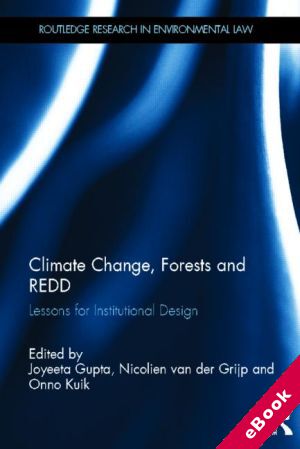
The device(s) you use to access the eBook content must be authorized with an Adobe ID before you download the product otherwise it will fail to register correctly.
For further information see https://www.wildy.com/ebook-formats
Once the order is confirmed an automated e-mail will be sent to you to allow you to download the eBook.
All eBooks are supplied firm sale and cannot be returned. If you believe there is a fault with your eBook then contact us on ebooks@wildy.com and we will help in resolving the issue. This does not affect your statutory rights.
A search for new methods for dealing with climate change led to the identification of forest maintenance as a potential policy option that could cost-effectively reduce greenhouse gas emissions, with the development of measures for Reducing Emissions from Deforestation and Forest Degradation (REDD). This book explores how an analysis of past forest governance patterns from the global through to the local level, can help us to build institutions which more effectively deal with forests within the climate change regime. The book assesses the options for reducing emissions from deforestation in developing countries under the international climate regime, as well as the incentives flowing from them at the national and sub national level and examines how these policy levers change human behaviour and interface with the drivers and pressures of land use change in tropical forests. The book considers the trade-offs between certain forestry related policies within the current climate regime and the larger goal of sustainable forestry. Based on an assessment of existing multi-level institutional forestry arrangements, the book questions how policy frameworks can be better designed in order to effectively and equitably govern the challenges of deforestation and land degradation under the global climate change regime. This book will be of particular interest to students and scholars of Law and Environmental Studies.